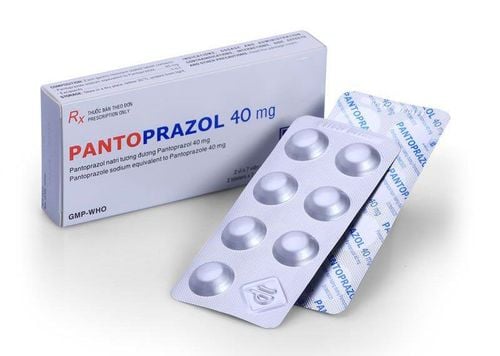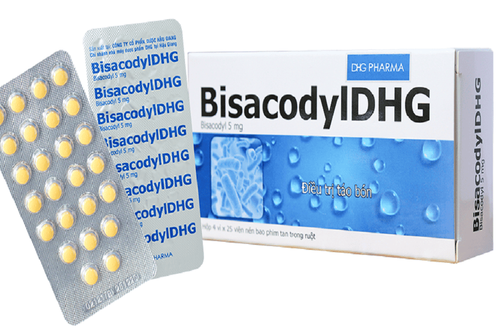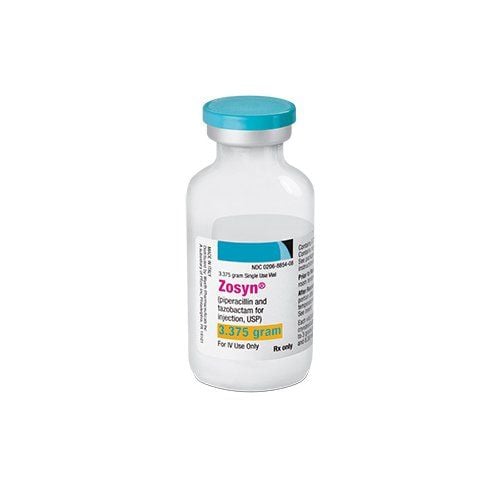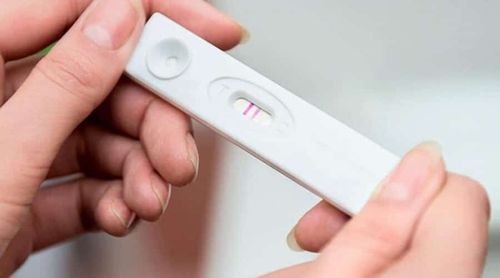This is an automatically translated article.
There are many reasons why a child has colic, but a doctor's help is not always needed. However, it should not be too subjective, because abdominal pain is sometimes an indicator of many dangerous diseases that need urgent intervention.
1. Causes of abdominal pain in children
There are many causes of colic in children such as bacterial infections, viruses, insect bites, overeating, food allergies, food poisoning or toxins, drug overdose, diseases of organs Intra-abdominal or adjacent problems or problems that require urgent surgery such as appendicitis, intestinal obstruction...
1.1 Constipation in children Symptoms: If the child has not urinated in three days or more and feels difficult If you bear to urinate, your child may be constipated.
Causes: Dietary changes (eg, starting to eat solids), lack of fiber, illness, or dehydration are common causes of constipation.
What to do: Provide plenty of fluids during the day. Exercise can also help keep the bowels moving. If your child is taking a supplement, offer foods high in fiber to help loosen stools, such as oatmeal, apricots, pears, prunes, and peas.
If your toddler is still having trouble having a bowel movement, talk to the doctor about treatment options. Do not give your child laxatives or other over-the-counter medicines unless recommended by your doctor, as they can cause harmful side effects in your child if not taken correctly.

Thiếu chất xơ ở trẻ có thể gây táo bón
1.2 Gas pain Symptom: Baby may cry for no apparent reason, or he may bend his legs up and out, arching his back.
Cause: Gas forms when a child swallows air. Stomach bloating is common when babies start solids and try different foods for the first time. Gas can be a sign of gut immaturity, especially during the first trimester: Bacterial colonies in your baby's digestive tract ("gut microbiota") are still developing.
What to do: Ways to ease colic in children include frequent burping, keeping baby upright while feeding, and gently massaging the baby's tummy. You can try placing your baby on his or her stomach and rubbing his back.
1.3 Gastroesophageal reflux Symptoms: regurgitation of milk, vomiting sometimes after feeding.
Cause: Gastroesophageal reflux disease occurs when the valve between the esophagus and the baby's stomach doesn't work properly, and food and stomach acid back up from the stomach into the throat.
What to do: Talk to your doctor if you think your child has reflux. Ways to ease symptoms include feeding in smaller amounts, burping frequently, and keeping the baby upright during and after feedings. Most babies have reflux within the first year of life.
1.4 Upper respiratory tract infection

Nhiễm trùng đường hô hấp trên ở trẻ em có nguy hiểm không?
Symptoms: The child may have an upset stomach with a runny or stuffy nose.
Cause: A lot of mucus secreted from an upper respiratory illness runs down the child's throat and can irritate the child's stomach.
What to do: Some babies and children vomit to clear mucus from their bodies. This condition usually works and makes the pain go away. You can also try home treatments to help clear up mucus and make your child more comfortable.
What to do: Get plenty of rest during long trips so your baby can get some fresh air. Give your child something to eat before the ride and drink plenty of water to keep them hydrated. Don't give your baby any medicine to treat motion sickness without first talking to your doctor.
1.5 Food Allergies Symptoms: Food allergies can cause a range of mild to severe symptoms including vomiting, diarrhea, wheezing, cough, stuffy or runny nose, swollen tongue , hives or an itchy rash.
Cause: Your child's immune system will overreact to a food. The most common allergens are eggs, milk, peanuts, tree nuts, fish, shellfish, wheat, and soy. Allergic reactions can occur within minutes or hours of eating the food.
What to do: Talk to your doctor if you notice your baby has symptoms after eating a certain food.
1.6 Intestinal obstruction (obstruction) Symptoms: Struggling with pain, the child may vomit violently, raise his legs and cry.
Cause: Intussusception occurs when one part of the intestine slides into the next. Pyloric stenosis, characterized by bullet-induced vomiting, is caused by thickening of the muscle leading from the stomach to the intestines, resulting in obstruction of the passage of food.
What to do: Call the doctor. If you can't get to the doctor right away, take your child to the emergency room.
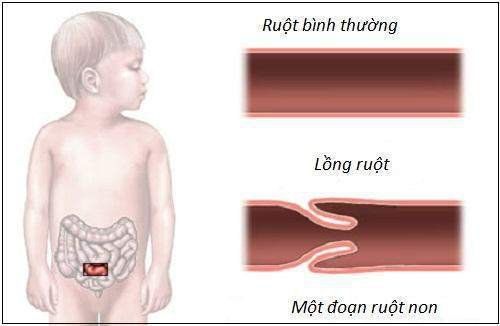
Lồng ruột ở trẻ
Causes: Children can become poisoned by swallowing something toxic, such as drugs, plants, or chemicals, or from chronic exposure to a toxic substance, such as lead.
What to do: If you suspect your child has lead poisoning, ask your doctor so he or she can be tested.
1.8 Other Infections Symptoms: Some infections can cause stomach problems, including nausea and vomiting.
Causes: Urinary tract infections, strep throat, pneumonia, and even ear infections can upset your child's colic.
What to do: Talk to your doctor. Treatment depends on the type of infection.
1.9 Appendicitis Symptoms: In addition to fever and vomiting, abdominal pain progresses from the navel to the right lower abdomen that an older child can describe. The abdomen may be distended and sensitive to the touch. Your baby may lie on his right side if the inflamed appendix irritates the muscles leading to the leg.
Cause: The appendix is an organ at the top of the large intestine that becomes inflamed and infected when bacteria get stuck in it, typically because hard stools or a large lymph node compresses it.
What to do: Call your baby's doctor to determine if you should take your child to the emergency room.
2. Under what circumstances should you call a doctor?

Nếu trẻ bị đau bụng nhiều lần trong ngày và kéo dài ba ngày liên tiếp nên gọi ngay cho bác sĩ
Call your doctor if your child has abdominal pain and has the following signs:
Pain occurs several times a day and occurs more than three days in a row Abdominal pain that gets worse Other symptoms, such as vomiting vomiting, diarrhea or fever Weight loss from colic Warning
Seek immediate medical attention if your child's colic is severe - if you can't distract your child from the pain or it's obvious he extremely uncomfortable.
When a child shows abnormal signs of health, parents can take the child to Vinmec Health system for timely examination and treatment.
In addition, in order to prevent diseases that young children often get, parents should pay attention to nutrition to improve children's resistance. At the same time, add supporting foods containing lysine, essential micro-minerals and vitamins such as zinc, chromium, selenium, B vitamins,... snacks and less digestive problems.
Parents can learn more:
Why do you need to supplement Lysine for your baby?
The role of zinc - Guidelines for reasonable zinc supplementation
Please visit the website Vinmec.com regularly and update useful information to take care of your baby and family.
Reference source: babycenter.com




